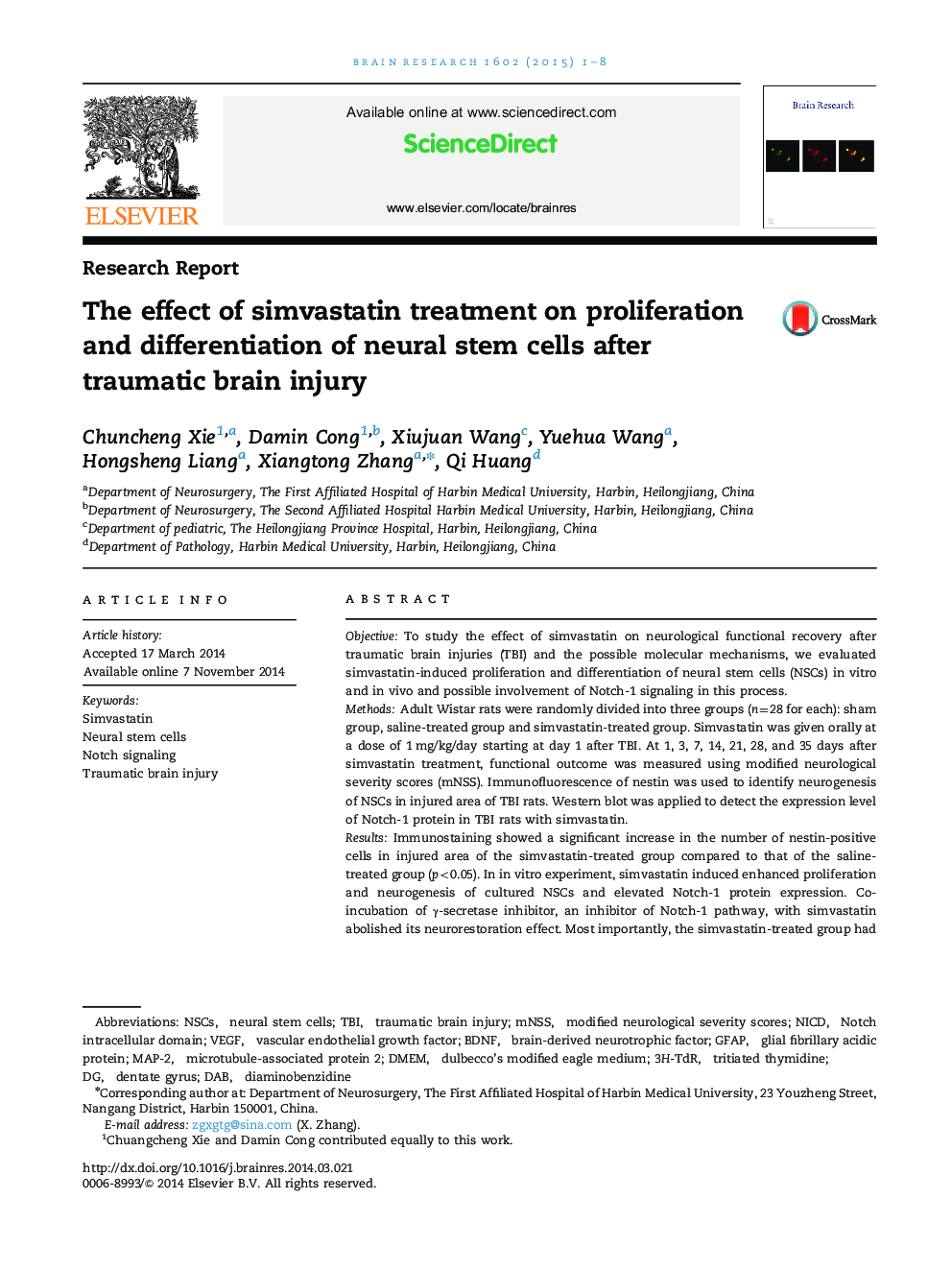| کد مقاله | کد نشریه | سال انتشار | مقاله انگلیسی | نسخه تمام متن |
|---|---|---|---|---|
| 4323897 | 1613837 | 2015 | 8 صفحه PDF | دانلود رایگان |
• Simvastatin treatment significantly improved neurological functions after traumatic injury (TBI).
• Simvastatin induced proliferation and differentiation of neural stem cells (NSCs) in vitro and in vivo.
• The possible mechanisms underlying this phenomenon involved the Notch-1 signaling pathway.
ObjectiveTo study the effect of simvastatin on neurological functional recovery after traumatic brain injuries (TBI) and the possible molecular mechanisms, we evaluated simvastatin-induced proliferation and differentiation of neural stem cells (NSCs) in vitro and in vivo and possible involvement of Notch-1 signaling in this process.MethodsAdult Wistar rats were randomly divided into three groups (n=28 for each): sham group, saline-treated group and simvastatin-treated group. Simvastatin was given orally at a dose of 1 mg/kg/day starting at day 1 after TBI. At 1, 3, 7, 14, 21, 28, and 35 days after simvastatin treatment, functional outcome was measured using modified neurological severity scores (mNSS). Immunofluorescence of nestin was used to identify neurogenesis of NSCs in injured area of TBI rats. Western blot was applied to detect the expression level of Notch-1 protein in TBI rats with simvastatin.ResultsImmunostaining showed a significant increase in the number of nestin-positive cells in injured area of the simvastatin-treated group compared to that of the saline-treated group (p<0.05). In in vitro experiment, simvastatin induced enhanced proliferation and neurogenesis of cultured NSCs and elevated Notch-1 protein expression. Co-incubation of γ-secretase inhibitor, an inhibitor of Notch-1 pathway, with simvastatin abolished its neurorestoration effect. Most importantly, the simvastatin-treated group had significantly decreased mNSS at day 35 after TBI compared with the saline-treated group (p<0.05).ConclusionSimvastatin treatment enhanced neurological functional recovery after TBI possibly via activation of Notch signaling and increasing neurogenesis in the injured area.
Journal: Brain Research - Volume 1602, 30 March 2015, Pages 1–8
